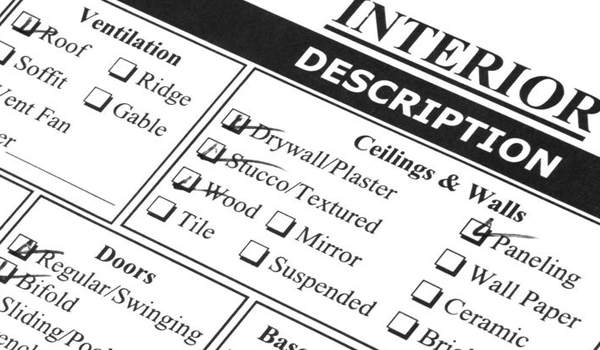What Is a Home Appraisal?

You're about to buy or sell a home, and you're probably wondering, "What is a home appraisal?" This is a crucial part of the process, and it's essential to understand what it is and how it works.
In today’s post, we’ll break down the basics so you can navigate the home-buying process with confidence. Let's dive in.
What Is a Home Appraisal for a House?
A home appraisal is an independent professional assessment of a property's market value. It's essentially a financial snapshot of your house, providing a fair and impartial estimate of its worth in today's market.
Home appraisals are conducted for different reasons:
- Mortgage loan applications, including new mortgages and mortgage refinancing.
- Estate planning such as inheritance and estate tax.
- Property transactions when selling your home, buying a home, or property settlement like divorce.
- Property disputes, something like property line disputes or tax assessments.
- Insurance claims in case of damage or loss.
Essentially, if you are involved in any type of real estate transaction, a home appraisal is a necessary step in ensuring a fair and successful process. For a more comprehensive understanding, check out our other blog post about the difference between home appraisal and home inspection.
What Is a Home Appraisal in Canada?
Home appraisals in Canada are basically the same as those in other countries in terms of purpose and process. While there might be some minor differences in regulations or specific provincial requirements, the core principles remain consistent.
Keep in mind that an appraisal provides an objective estimate of value, but it's not always a guaranteed price. Market conditions and other factors can influence the final selling price.
Home Appraisal Process
A home appraisal is conducted by a licensed and qualified appraiser. Its process is thorough and follows a standardized approach including:
- Client Engagement: First, the client (homeowner, lender, legal representative) requests an appraisal. The appraiser will discuss the appraisal's purpose to determine the scope of the assessment.
- Data Gathering: The appraiser gathers information about property details (address, size, age, number of bedrooms and bathrooms, major renovations, etc.), comparable properties AKA "comps" (location, size, condition, amenities), and market conditions.
- Site Visit: The appraiser conducts a thorough inspection of the property. For the exterior, it includes landscaping, driveway, surrounding neighborhood, etc. For the interior, it includes materials’ quality, finishes, appliances, and overall condition. Unique features such as a basement suite, a detached garage, or a scenic view are also important.
- Appraisal Analysis: The appraiser analyzes the collected data, considering various adjustments based on differences in property features, condition, and market influences.
- Report Generation: The appraiser compiles the findings into a comprehensive report. This report typically includes property description, “comps”, appraisal methods, and adjustments in detail. It also states the appraised value as well as a disclaimer. (More on the report later)
- Appraisal Review: Depending on the purpose of the appraisal, the client or their lender reviews the report. They may ask the appraiser to clarify any aspects of the report or to provide additional information if required.

How Long Does It Take?
The appraisal itself doesn’t take more than a few hours. But the entire process can take up to a week.
This timeframe can vary depending on several factors such as appraiser's availability, complexity of the property, and market conditions. The time of year is also notable. Seasons like spring and fall often see higher demand for appraisals.
What Happens After the Appraisal?
For a home purchase, the lender reviews the appraisal report to determine if the home's value supports the loan amount requested. There are two possible outcomes:
- Appraisal matches or exceeds the purchase price: The loan proceeds as planned.
- Appraisal falls below the purchase price: In this case, the buyer and seller may need to renegotiate the purchase price to match the appraisal. If the price difference is significant, the lender may deny the loan, as the property isn't considered a safe investment.
In rare cases, the appraisal is significantly higher than the purchase price. It is often in the buyer's favor, but the lender may re-evaluate the loan terms.
Understanding the Appraisal Report
Here's a breakdown of what to expect in an appraisal report:
- Property Identification and Details: Accurate address, legal description, property type, and key features (size, bedrooms, etc.).
- Appraisal Purpose: Clearly states why the appraisal was done (mortgage, estate, etc.).
- Date of Appraisal: The report must state the date the appraisal was completed.
- Appraiser Info: Name, license number, and any professional affiliations.
- Appraisal Methods: Explains how the value was determined, sales comparison approach. cost approach (used when there's a lack of comparable sales data) or income approach (for income-generating properties like rentals).
- Market Analysis: A brief overview of the local real estate market and its impact on your property's value.
- Property Description: Details about the home's condition (interior and exterior), any problems, and the site itself.
- Adjustments: Explains how the appraiser adjusted the values of comparable properties to account for differences with yours.
- Appraised Value: The final estimated market value of your property.
- Disclaimers: Stresses that this is an estimate, not a guarantee, and market conditions can change.
- Appraiser Signature and Certification: Confirms their responsibility and qualifications.
- Supporting Documentation: Includes detailed information about comparable properties, photos or sketches, and any relevant documents.
Remember, an appraisal report isn't about a single number. So don’t focus on the final value – the report gives insights into the property itself and market conditions, enabling you to negotiate a fair price, secure good mortgage terms, and make informed decisions.
The report must be accurate and transparent too, but feel free to ask questions if anything is ambiguous.
Challenging the Report
To challenge a home appraisal report, you can request a review from the appraiser and ask for a detailed explanation of their findings. You can also hire a different, qualified appraiser to conduct a new assessment. Filing a complaint with the appraisal regulatory body is another option.

What Is a Home Appraisal Cost?
According to thinkinsure.ca, home appraisals can cost between $350 to $700 depending on the company, what is included in the review, and location.
Who Pays for Home Appraisal?
The buyer usually pays for the appraisal when buying a home, while the borrower pays for the appraisal when refinancing or taking out a HELOC.
However, who pays for the appraisal can be negotiated in some cases. It's essential to clarify who pays for the process in the offer to purchase or the financing agreement to avoid confusion.
What You Need to Know About Appraisals
If you’re a buyer, understanding the appraisal process is crucial for you. It's an estimate of value, not a guarantee, and can be negotiated if needed. Be transparent with the appraiser about any known issues, and ensure they have access to all areas of the house. Review the report carefully and discuss any concerns with your realtor and lender. The appraisal is just one piece of the puzzle, but it's a vital one.
If you’re a seller, it's important to make sure your home is presented in the best possible light. That means decluttering, making minor repairs, and ensuring the appraiser has easy access to every part of your house. A strong appraisal can make all the difference in getting the best price for your home.
And if you’re a refinancing homeowner, keep in mind that in this case, appraisals aren’t just about the house, they're about the market. The appraiser will compare your home to similar ones that have recently sold, so be prepared to discuss recent sales in the area. Also, make sure your home is clean and organized, and that the appraiser can access everywhere.
How to Get a House Appraisal in Canada?
To get a house appraisal in Toronto, contact a lender or real estate agent to order an appraisal for you. Choose a qualified expert; ask for recommendations or check the Appraisal Institute of Canada website.
Note that in Canada, only licensed appraisers by AIC are qualified to conduct home appraisals. These experts hold either an AACI designation (for commercial and/or residential properties) or a CRA designation (for residential properties).
- In this post:
- What Is a Home Appraisal for a House?
- Home Appraisal Process
- Understanding the Appraisal Report
- What Is a Home Appraisal Cost?
- What You Need to Know About Appraisals
- How to Get a House Appraisal in Canada?



